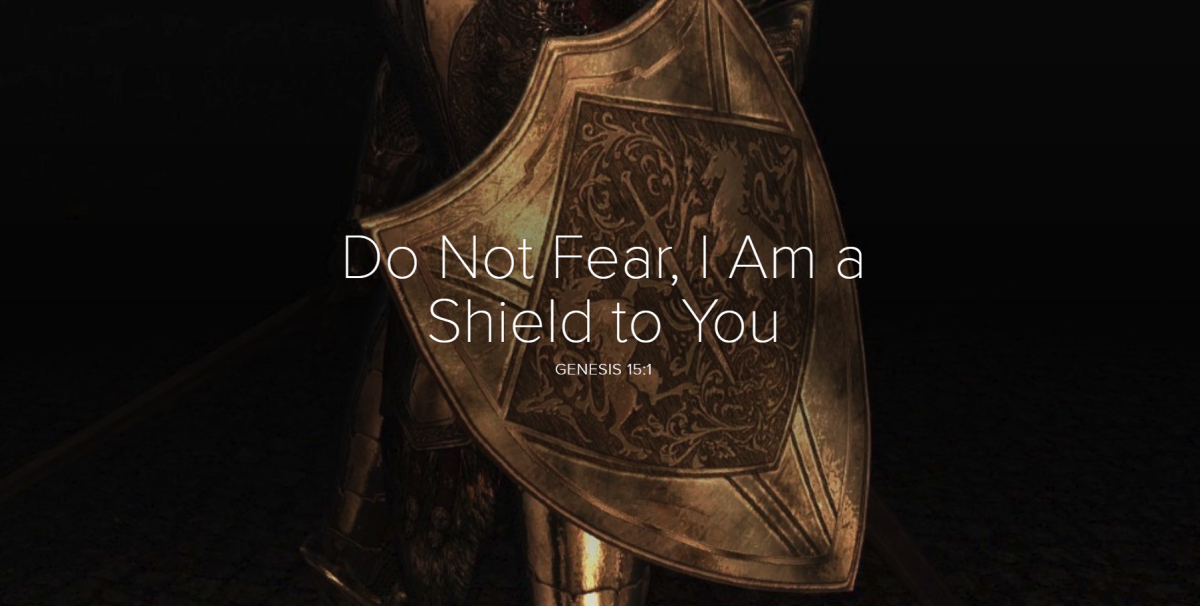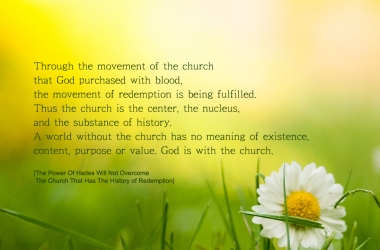Do not fear
Genesis 15:1 says, “After these things the word of the LORD came to Abram in a vision, saying, “Do not fear, Abram, I am a shield to you; Your reward shall be very great.” God spoke these words to ratify the covenant of the torch with Abraham. This took place approximately 10 years after Abraham had entered Canaan (Gen 15:1; 16:3).
Your reward shall be very great
Following Abraham’s victory in the battle against the allied forces of the four nations and the rescue of his nephew Lot, the Word of God came to Abraham. Here, God granted an amazing bestowal, saying, “Your reward shall be very great” (Gen 15:1). This was God’s ninth bestowal upon Abraham.
God will be a shield to Abraham
The second half of Genesis 15:1 says, “Do not fear, Abram, I am a shield to you; Your reward shall be very great.” Here, the words “shield” and “great reward” are used side by side. There was fear inside of Abraham. God promised Abraham at age 75 that He will make a great nation of him, but almost 10 years had passed since then and it became barely likely for Abraham to father a child. Also, althoughhe had won the battle against the allied forces of the four nations, Abraham was in a situation where hefeared the potential revenge at hand.
Put your trust in Me
It was then that God appeared to Abraham and told him, “I am your shield.”A shield blocks all attacks from the enemy during a war. Therefore, God saying He will be a shield to Abraham means that God will help Abraham and be his safe shelter. The Hebrew word for “shield” is (magen), which is often used together with the words “help” or “refuge” (Deut 33:29). Thus, the statement “I am your shield” contains God’s strong will that “If you put your trust only in Him, He will certainly provide protection and help, and fulfill what He has promised to you.”Therefore, those who trust in the Lord God will help and shield (Psa 115:9-11).
God will surely reward you
Genesis 15:1 says, “I am a shield to you; Your reward shall be very great.” Here, “very great reward” is a superlative expression. This is describing an amazing reward that is unimaginable to the human mind. The word “reward” is (sakar) in Hebrew, meaning “compensation, pay, wages.”Abraham received the promise of a “great nation” at age 75 (Gen 12:2); however, there was no significant change in his life for almost 10 years since then. Although Abraham did believe in God’s promise, he was childless for nearly 10 years, and it was less and less likely for the promise to be fulfilled. It was then that God said God Himself is the great reward. No big fortune, great power, great fame, or reward of this earth can be greater than God. God is the greatest reward for saints. Thus, when God is on our side, we are receiving the greatest reward in life, the greatest refuge in life, and the greatest shield in life. Therefore, Abraham received a tremendous blessing of God being on his side as a greatest reward (Psa 118:6-7).
Lord over all things
God is the Lord over all things in the universe. Thus, when God Himself is the reward, it means that everything is in that reward. For this reason, Apostle Paul confessed, “as sorrowful yet always rejoicing, as poor yet making many rich, as having nothing yet possessing all things” (2 Cor 6:10).
Conclusion: When we have nothing and become bare, completely forsaking our own thoughts and wills (Job 1:21), God Himself becomes our reward and visible rewards naturally follow. But if we forsake God, no riches of this earth will follow; even if it does follow, it is likely to become a snare to us. Proverbs 10:22 states, “It is the blessing of the LORD that makes rich, and He adds no sorrow to it.”However, many griefs follow the riches that did not come from God. 1 Tim 6:10 states, “For the love of money is a root of all [a]sorts of evil, and some by longing for it have wandered away from the faith and pierced themselves with many griefs.”Therefore, we must believe that God is our reward, give our sincere thanksgiving to Him, and receive and enjoy the griefless blessings from God.












